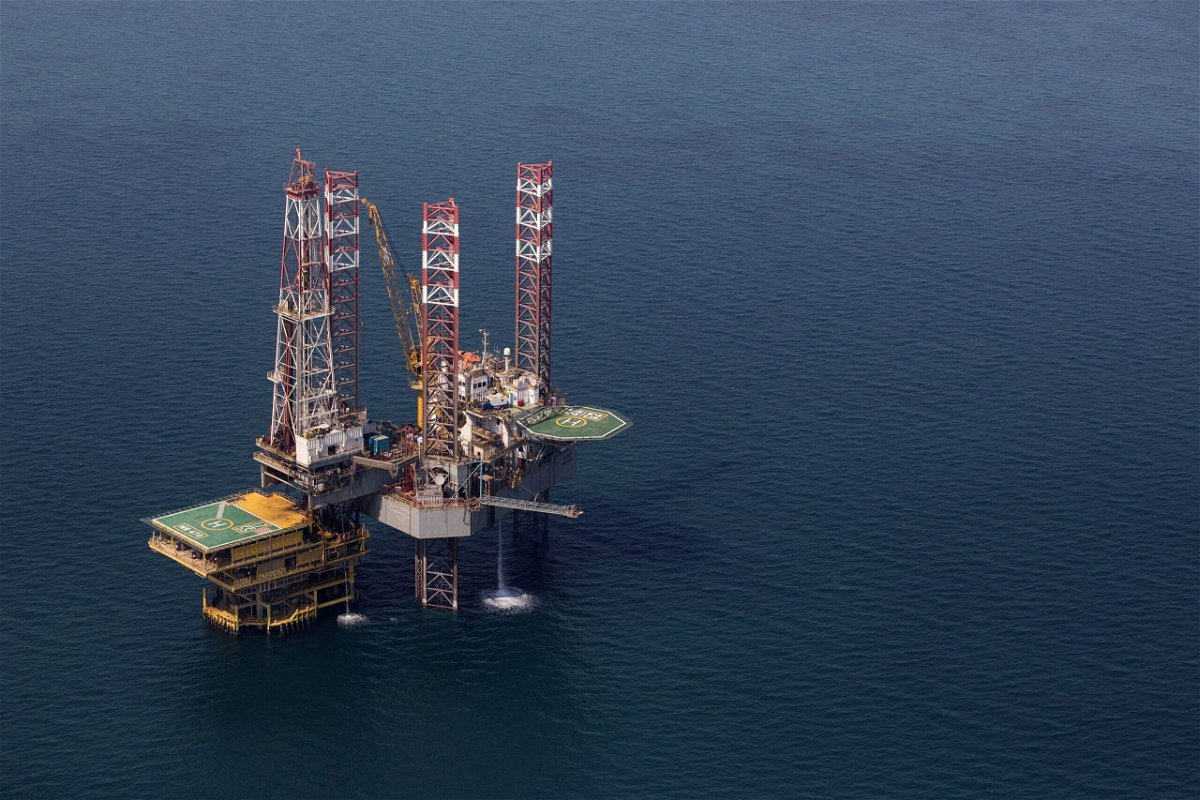Oil prices jump after Saudi Arabia vows to cut production again

Saudi Arabia and other members of the OPEC+ group of oil producers are trying to stem a recent slide in crude oil prices.
By Mark Thompson and Michelle Toh, CNN
London/Hong Kong (CNN) — Oil prices rose Monday after Saudi Arabia said it would slash output by another one million barrels per day for at least a month starting in July as part of an effort by OPEC+ producers to shore up crude prices.
At 5.30 a.m. ET, Brent crude, the global benchmark, was trading up 2.3% at nearly $78 a barrel, while WTI, the US benchmark, rose 2.4% to $73.50. Gasoline futures were up 1.5%, but the average US pump price for a gallon of regular unleaded gas was unchanged at $3.55.
The Saudi production cut was its biggest in years and will depress its output to nine million barrels per day. It came after a meeting Sunday in Vienna of the alliance known as OPEC+, which includes members of the Organization of the Petroleum Exporting Countries (OPEC), Russia and other smaller producers.
Homayoun Falakshahi, a senior oil analyst at data provider Kpler, said the supply curbs meant gas prices in Europe and the United States “could slightly rise, further impacting drivers” during the upcoming summer holiday season.
At the Vienna meeting, Riyadh also agreed to extend a production cut of 500,000 barrels per day — announced in April — through 2024. Reuters, citing Russian Deputy Prime Minister Alexander Novak, reported that Moscow would extend its own production cut of 500,000 barrels per day through to the end of next year.
Other members of OPEC+ would also continue to curb output until the end of 2024, Reuters reported.
The Saudi Ministry of Energy “explained that the Kingdom’s additional voluntary cut comes to reinforce the precautionary efforts made by OPEC+ countries with the aim of supporting the stability and balance of oil markets,” the state-owned Saudi Press Agency said Sunday.
A roller coaster ride
The White House responded to Saudi Arabia’s decision to slash oil production by saying US officials are focused on prices for American consumers.
“We are not a party to OPEC+, which makes its own decisions,” a White House official told CNN in a statement. “We are focused on prices for American consumers, not barrels, and prices have come down significantly since last year.”
US gas prices have plunged from a year ago, in large part because oil prices are down. After spiking above $130 a barrel in March 2022, Brent crude oil prices have nearly been cut in half.
OPEC+, which produces about 40% of the world’s crude oil, unexpectedly announced in April that its members would cut output by 1.66 million barrels per day, on top of reductions of two million barrels per day unveiled in October.
Oil prices surged after the surprise April cut, reaching a peak later that month, but reversed course in subsequent weeks. Brent crude is still more than 9% down since the start of the year, and trading near where it was before the April move by OPEC+.
Analysts had predicted that the group of producers would hold off announcing any further supply cuts Sunday, given a divergence of interests between Russia — whose oil exports are subject to a price cap imposed by the G7 over the war in Ukraine — and Saudi Arabia, which needs oil to rise above $80 a barrel to balance its budget.
But the kingdom’s energy minister had stoked speculation of a further cut when he said last month that he would keep short-sellers — traders betting that prices will fall — “ouching.”
“I don’t have to show my cards, I’m not a poker player… but I would just tell them: watch out,” Prince Abdulaziz bin Salman told a conference in Qatar organized by Bloomberg.
A ‘lollipop’
The minister described Riyadh’s decision to further slash production on Sunday as a way to surprise and lift the market.
“This is a Saudi lollipop,” the prince was quoted by Reuters as telling a news conference. “We wanted to ice the cake. We always want to add suspense. We don’t want people to try to predict what we do.”
Stephen Innes, managing partner of SPI Asset Management, called the decision “an attempt to provide a bridge [to stability] until demand picks up.” Currently, sentiment among oil traders “is extraordinarily fragile,” he wrote in a note Monday.
Oil prices have been under pressure from a gloomy overall outlook for the US and global economies. There is evidence that growth is stuttering in the United States and China — the world’s top two economies.
China’s slowdown gives Germany, Europe’s biggest economy, little hope of an easy exit from its own economic downturn since China is its most important trading partner.
The OPEC+ weekend meetings were marked by curbs on access for the media.
Reuters said in a report Wednesday that its text journalists who cover such meetings and are registered with OPEC as members of the press had not received an invite to cover the event.
OPEC had also not offered accreditation to Bloomberg to cover the meeting, and two reporters from the Wall Street Journal who regularly cover OPEC had also not received invites.
— Matt Egan contributed to this report.
The-CNN-Wire
™ & © 2023 Cable News Network, Inc., a Warner Bros. Discovery Company. All rights reserved.